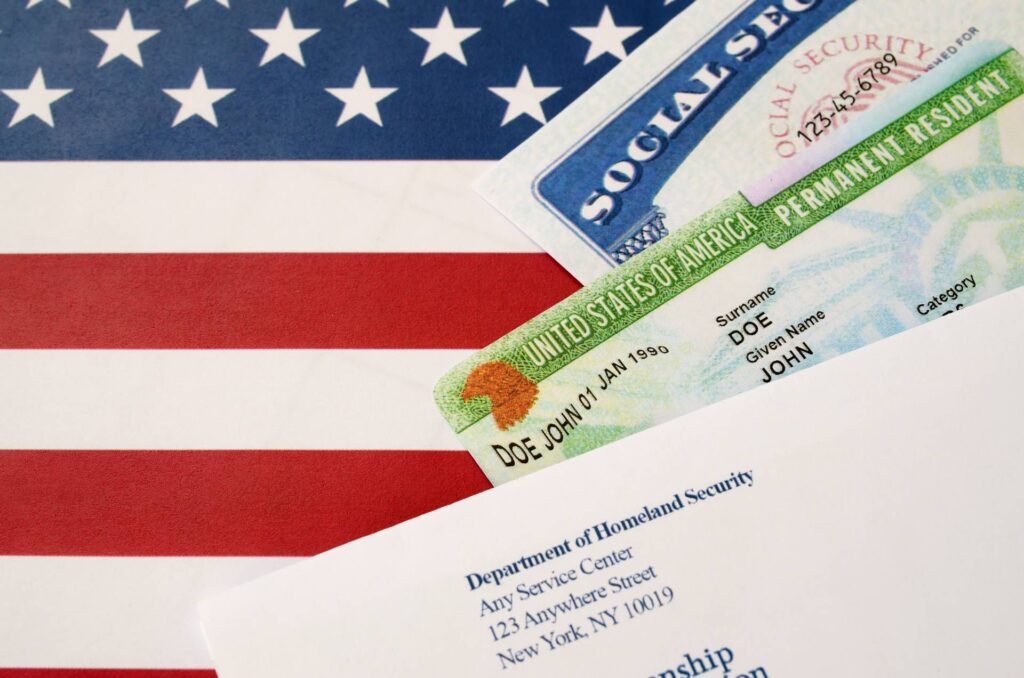What is Temporary Protected Status?
If the U.S. Homeland Security Secretary has designated your home nation for Temporary Protected Status (TPS), reach out promptly to a Boston immigration lawyer who can help you apply for and receive TPS.
Temporary Protected Status is humanitarian relief offered to nationals of countries experiencing an armed conflict, a natural disaster, or any extraordinary condition that makes it unsafe for those nationals to return home.
The Homeland Security Secretary may designate nationals of a particular nation, if they are already in the United States, for TPS eligibility because conditions temporarily prevent that nation’s residents from returning there safely.
However, you must register for Temporary Protected Status by completing and filing an “Application for Temporary Protected Status” (U.S. Citizenship and Immigration Services Form I-821). A Boston TPS attorney can ensure that your application is accurate and complete.
What Are the Advantages of Temporary Protected Status?
TPS beneficiaries are not removable from the U.S., may obtain employment authorization documents (EADs), and may receive travel authorization. When you register or re-register for TPS, you may request an EAD by filing Form I-765 (“Request for Employment Authorization”).
Temporary Protected Status is not a direct path to lawful permanent resident status. However, TPS does not prevent you from seeking a green card or applying for other immigration protections or benefits.
Does Approval for TPS Qualify You for Other Benefits?
When you are approved for Temporary Protected Status, to receive other immigration benefits, you must meet the specific requirements for those benefits. An application for TPS does not affect an application for asylum status, for example.
Similarly, denial of asylum does not prevent you from petitioning for Temporary Protected Status. However, the grounds for denying asylum may also be the grounds for denying Temporary Protected Status.
TPS beneficiaries do not qualify to receive public assistance in the United States.
How Do TPS Designations Benefit Immigrant Communities?
TPS designations offer substantial benefits to immigrant communities, such as the Salvadoran community, by allowing members of those communities to work and reside legally in the United States.
TPS provides these communities with stability and protection, particularly when members face limited legal options. More than 232,000 Salvadorans with Temporary Protected Status, for example, are currently living, working, and raising their children in the United States.
TPS holders contribute substantially to the U.S. workforce and economy. Many start businesses and contribute to their local communities. However, because TPS is temporary, the possibility of its termination creates instability and uncertainty in immigrant communities.
What Are Your Options if You Are Denied Temporary Protected Status?
If your request for Temporary Protected Status is denied, you should discuss your recourse with your Boston immigration lawyer. You’ll have several options, including:
- Filing an appeal: You may appeal your denial of Temporary Protected Status to the USCIS Administrative Appeals Office (AAO) by submitting a “Notice of Appeal or Motion” (USCIS Form I-290B).
- Filing a motion to reopen your case or reconsider your TPS application: If you have new evidence or facts not initially submitted, your TPS lawyer may file a motion to reconsider your petition or reopen your case.
What if You Are in Removal Proceedings?
If you’re in removal proceedings, your attorney may ask an immigration judge to reconsider your TPS application “de novo.”
A de novo reconsideration means a judge will make a fresh decision on your TPS eligibility despite the previous denial by USCIS and even if your appeals to the USCIS Administrative Appeals Office (AAO) have been exhausted.
You have the right to a de novo review in removal proceedings, even if you did not appeal the denial of Temporary Protected Status to the USCIS Administrative Appeals Office.
Which Nations Are Designated for TPS?
As of May 2025, these nations are designated for TPS: Cameroon, Burma, El Salvador, Haiti, Ethiopia, Lebanon, Honduras, Nicaragua, Nepal, Somalia, Sudan, South Sudan, Ukraine, Syria, Yemen, and Venezuela.
The list of TPS-designated nations changes frequently. In May 2025, for example, U.S. Homeland Security Secretary Kristi Noem announced the termination of TPS for immigrants from Afghanistan. The Homeland Security Department determined that economic improvements and overall security in Afghanistan mitigate the risks for returning Afghan nationals.
TPS for Haitian immigrants is set to expire on August 3, 2025. TPS for Salvadorans is set to expire in September 2026. As of May 2025, a court order continues to halt temporarily the termination of TPS for Venezuelans, which was originally set to take effect in April 2025.
How Long Are TPS Designations in Effect?
A nation may receive a TPS designation for six, twelve, or eighteen months at a time. At least sixty days before a TPS designation expires, the Homeland Security Secretary must determine whether to continue or terminate the designation based on the conditions in that nation.
If an extension or termination decision is not published in the Federal Register at least sixty days before expiration, the TPS designation extends automatically for six months. The law does not limit the number of TPS extensions a nation may receive.
What Happens When a TPS Designation Ends?
When a nation’s TPS designation ends, TPS beneficiaries from that nation return to the immigration status they held before receiving TPS, unless that status expired or the individual has been approved for a new immigration status.
TPS beneficiaries who entered the U.S. without documentation, for instance, return to undocumented status when their nation’s TPS designation ends, and those individuals become subject to deportation.
Bring Your TPS Questions and Concerns to Toland Law
To apply for Temporary Protected Status, consulting a Boston TPS attorney at Toland Law is the first step you should take. Everyone’s circumstances differ, so you should have personalized immigration advice.
We will help you prove to the immigration authorities that you qualify for Temporary Protected Status. We also help our clients obtain visas, green cards, and immigration waivers. If you face a deportation proceeding, Toland Law will fight aggressively to help you remain in the U.S.
To learn more about our immigration services or to apply for Temporary Protected Status, schedule a consultation now with the immigration professionals at Toland Law. From anywhere in the world, you can call our Boston offices at 857-347-3701. We are ready to help.








